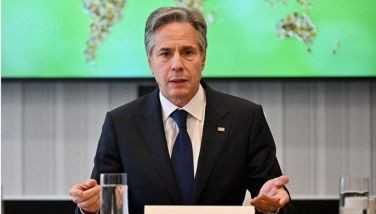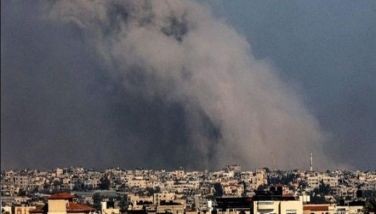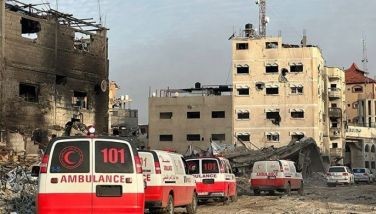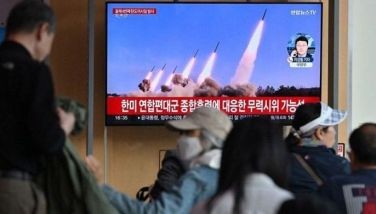Arab leaders meet to unify ranks with eye on Iran, Jerusalem
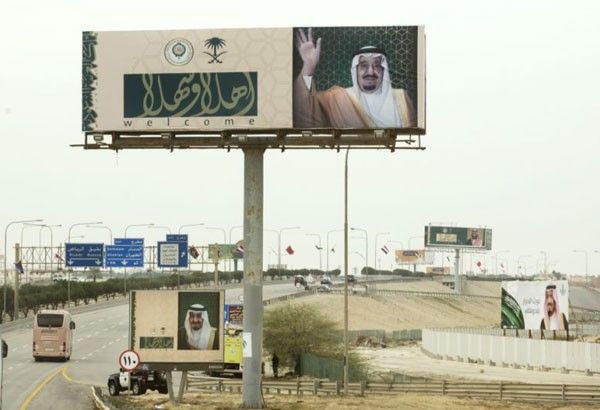
DHAHRAN — Saudi Arabia used its perch as host of an annual gathering of Arab leaders on yesterday to push for a unified stance against rival Iran as the regional powerhouses vie for the upper hand in wars in Syria and Yemen.
Saudi King Salman told leaders from across the 22-member Arab League that Iran was to blame for instability and meddling in the region. He said Yemeni rebel Houthis, backed by Iran, had fired 116 missiles at the kingdom since Saudi Arabia went to war in Yemen three years ago to try and roll back Houthi gains there.
The summit took place in the oil-rich eastern Saudi city of Dhahran, a location that may have been selected by the kingdom to avoid cross-border Houthi missile strikes that have targeted the capital, Riyadh, and southern border cities.
While locked in proxy conflicts in Yemen and Syria, Saudi Arabia and Iran also back opposing groups in Lebanon, Bahrain and Iraq.
The summit this year takes place after the US, Britain and France launched dozens of airstrikes early Saturday at sites they said were linked to Syrian chemical weapons program. President Bashar Assad and his close ally, Russia, have denied government forces ever used such weapons.
Arab League Secretary-General Ahmed Aboul-Gheit said Assad's government and "international players trying to achieve their own strategic political goals" bear responsibility for the collapse of that nation.
"Regional interference in Arab affairs has reached an unprecedented degree. And first of these is the Iranian interference, the aim of which is not for the well-being of the Arabs or their interests," he said.
Assad was not invited to the summit, though most heads of state from across the Middle East and North Africa attended the Arab League meeting, including Sudanese President Omar al-Bashir, who is wanted by the International Criminal Court for alleged war crimes in Darfur.
Saudi tensions with neighboring Qatar were also on display at the summit. Qatar's emir was not in attendance, instead dispatching his country's Arab League representative to the meeting. Tensions erupted nearly a year ago when Saudi Arabia, the United Arab Emirates, Bahrain and Egypt severed ties with Qatar and imposed a de facto blockade on the small Gulf state. The four accuse Qatar of sponsoring terrorism because of its support for Islamist opposition groups in the region and its warm relations with Iran. Qatar denies the allegations and says the moves attempt to undermine its sovereignty.
The standoff with Qatar, however, is not expected to feature in the summit.
Instead, Arab heads of state stressed in their opening remarks unity and unwavering support for Palestinians. King Salman reiterated Saudi Arabia's rejection of the US decision to move its embassy in Israel to Jerusalem and to recognize Jerusalem as the capital of Israel.
The king also announced Saudi Arabia had donated $150 million to the religious administration that oversees Muslim sites in Jerusalem, including Al-Aqsa mosque, which is one of Islam's holiest sites. He announced another $50 million for programs run by the UN relief agency for Palestinians after the US slashed its aid.
The strongest criticism of the Trump administration came from Palestinian President Mahmoud Abbas, who slammed US decisions on Jerusalem and its decision to withhold millions of dollars to the UN agency that provides health care, education and social services to an estimated 5 million Palestinians.
"The decisions have made the United States a party to the conflict and not a neutral mediator," he said.
Meanwhile, Aboul-Gheit blamed a lack of consensus among Arab states on a unified understanding of regional security, adding that "joint action is necessary in fighting these crises."
"The crises burning in some corners of the Arab world today... cast a shadow over the safety and security over the entire region," Aboul-Gheit said. "These take a toll on the national security of all of us."
- Latest
- Trending












